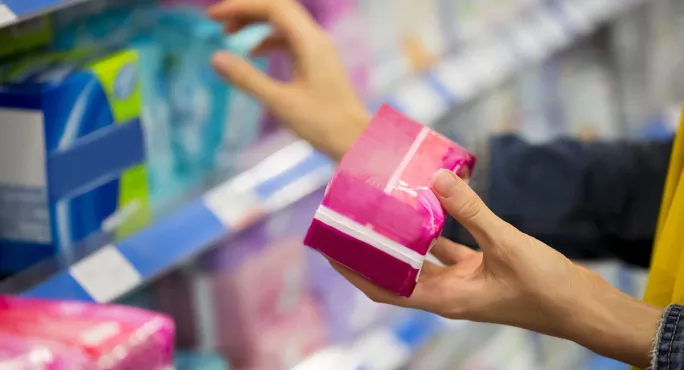MSPs are considering whether to introduce a law that would make sanitary products freely available across Scotland.
The legislation is under discussion by the Scottish Parliament’s Local Government and Communities Committee, with members of the public being asked to submit their views on the issue.
All schools and colleges across Scotland would provide sanitary products free of charge under the proposed legislation.
Period poverty: Six ways to educate pupils
Exclusive: Third of teachers ‘unprepared to talk periods’
News: Bullying over periods rife in schools, study finds
Background: Free sanitary products to be offered in primary schools
If passed, the Bill would also give the Scottish government the power to place other public organisations under this duty.
Tackling period poverty
The government could potentially compensate organisations for the cost of providing the products.
The Bill was introduced by Scottish Labour MSP Monica Lennon partly in response to concerns about “period poverty”.
Committee convener James Dornan, an SNP MSP, said: “No one who needs period products should have to go without them because they can’t afford or access them.
“Currently, free period products are supplied across schools, colleges and universities and under voluntary schemes by other public and community bodies.
“But we want to know if this goes far enough and whether this should become a legal duty.
“We’d like to hear whether people feel the Bill will help tackle this issue or if there are any other approaches which would work better.”
It was announced last week that more than 8 million free sanitary products were provided to school, college and university students in the first six months of a scheme to help tackle period poverty.
Provisional data suggests that 5,095,051 sanitary products were purchased by local authorities over the first six months of the initiative, which began at the start of the autumn term last year.
Meanwhile, a total of 24 colleges purchased 878,604 sanitary products and 19 universities purchased 2,296,474 sanitary products between September 2018 and February 2019.




